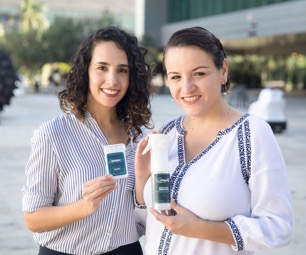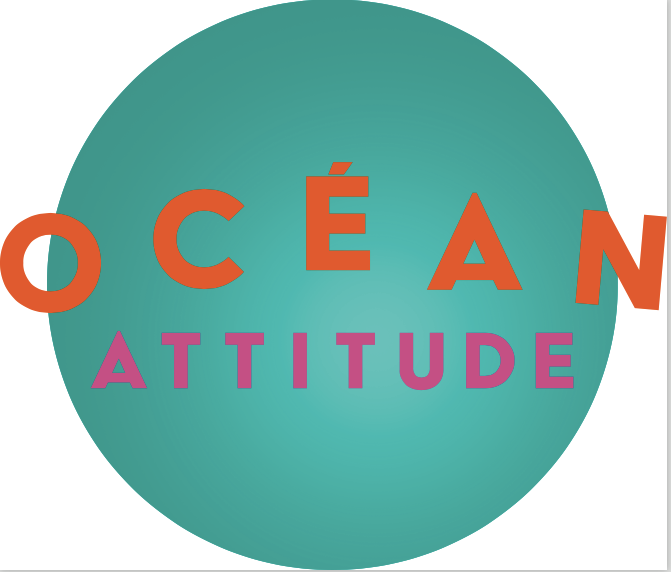While studying their PhD in Environmental Sciences and Engineering at King Abdullah University of Science and Technology in Saudi Arabia, Luisa Javier and Sandra Medina, engineers from Mexico and Colombia created WAYAKIT, the laundry solution for travelers.
The laundry process involves the use of water, electricity, tons of toxic chemicals, and process time. There has not been a more environmentally friendly innovation that substitutes the invention of the washing machine since 1858. Maybe the idea sounds a bit crazy but, can you conceive in your mind a waterless laundry solution?
About 22% of the water and 3-17% of electricity (Hustvedt et al., 2010) are used in a typical residential home is for washing clothes. Most of the used clothes are worn only once because of stains and smells of the day-to-day basis.
Although in recent years, energy and water efficiency machines have already achieved significant improvements, the question remains uncertain whether there are possibilities to improve even further by looking abroad on developed technologies that can diminish the absolute impact on resources.
Estimates say that a four-person household with a standard washing machine will generate more than 300 loads of laundry per year, consuming 12,000 gallons of water (Portland Water Bureau, n.d.). And this is even worse when we are traveling. Recent findings (Knezevic C. et al., 2017) indicate that even people who “reduce, reuse, recycle” at home do not behave particularly in an environmentally friendly way when on vacation.
 Sandra (left) and Luisa (right) with Wayakit Travel and Wayakit Home presentationWhen traveling
Sandra (left) and Luisa (right) with Wayakit Travel and Wayakit Home presentationWhen traveling
Laundry while traveling is still a challenge, even for NASA! Do you know how Astronauts do their laundry?
Well… they don’t, they reuse clothes in space at least 3 times and once they are dirty, they either burn them or ship them back to Earth!
We are Luisa and Sandra, two Ph.D. students of Environmental Science and Engineering at King Abdullah University of Science and Technology. We were inspired by the alarming impacts of laundry at home and while traveling! And our Ocean Attitude was to create an eco-friendly waterless laundry solution: Wayakit.
Wayakit is a pocket-size spray that cleans clothes instantly, removing smells and stains without the use of toxic chemicals. This spray contains a fresh scent solution composed by biodegradable organic solvents, enzymes and biosurfactants that degrades sweat molecules and stains. When using Wayakit on a regular basis, either in its travel, home or industry presentation, garments can be reused up to three times, reducing water and energy consumption. Wayakit is perfect for doing laundry on the go.
Sustainable impact
Now Wayakit is not only with many travelers in Mexico, Colombia and Saudi Arabia, but it is making a sustainable impact in HOTELS! How?... By reducing the total water and energy consumption used for the laundry of linen and towels.
Every day millions of gallons of water are used to wash towels that have only been used once in hotels. After restrooms drainage, laundry operations in the hospitality industry is accounted as the second activity (16%) with more water consumption (Howard, 2014). Imagine a big international hotel chain with around 4000 hotels, they do laundry of around 140 million towels and 130 million bath towels every year! We could reduce 54% of the environmental impacts (in terms of water, energy and CO2 emissions) and 35% of the operational costs for the hotel (in terms of water, energy and towel/linen replacement).
Environmentally-friendly practices are key aspirations to the hospitality industry to demonstrate hotel’s commitment to sustainable operations to their guests, which in turn will strengthen the hotel’s brand. Our Ocean Attitude is to do synergy with travelers and the hospitality industry in a win-win collaboration offering a sustainable laundry solution, reducing costs and ultimately reducing the environmental impacts. Which attitude is yours?
ABOUT THE AUTHORS
Sandra Medina - Ph.D. candidate in Environmental Science and Engineering and CTO Wayakit
Luisa Javier - Ph.D. candidate in Environmental Science and Engineering and CEO Wayakit
REFERENCES
Hustvedt, G., Pakula, C., Steyn, H., Ahn, M., Stamminger, R., 2010. Electricity and water consumption for laundry washing by washing machine worldwide. https://doi.org/10.1007/s12053-009-9072-8
Portland Water Bureau, n.d. Washing Machines Fact Sheet [WWW Document]. URL https://www.portlandoregon.gov/water/article/305154 (accessed 10.15.18).
Ljubica Knezevic Cvelbar, Bettina Grün & Sara Dolnicar (2017) Which hotel guest segments reuse towels? Selling sustainable tourism services through target marketing, Journal of Sustainable Tourism, 25:7, 921-934, DOI: 10.1080/09669582.2016.1206553
NASA, 2003. NASA - Astronauts’ Dirty Laundry [WWW Document]. URL https://www.nasa.gov/vision/space/livinginspace/Astronaut_Laundry.html (accessed 10.15.18).

